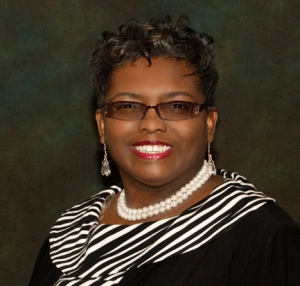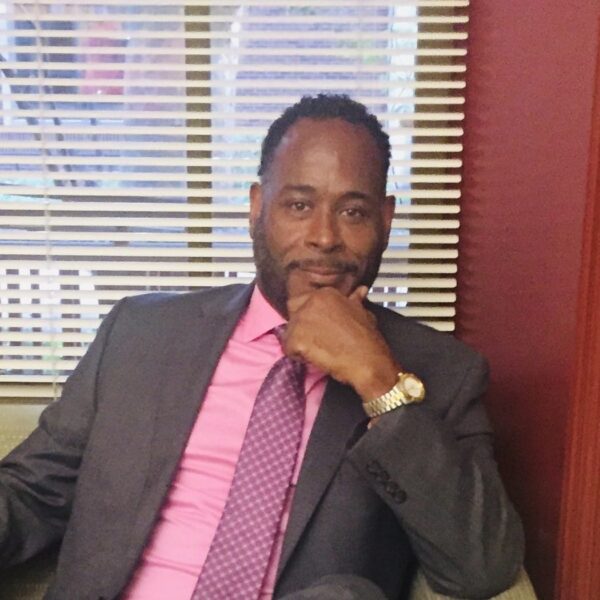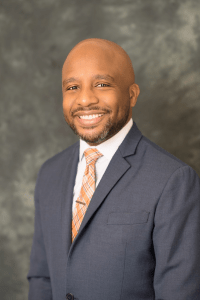Event Details
Event Date
Event Date: Friday, June 26, 2020
Event Time
Event Time: 10:00 AM - to 11:30 AM
Event Description
There is a history of under counting in this country with fears of being stigmatized because of HIV status, black folks being counting as 3/5 of a human, fears of being detained or deported based on legal residency status; most of which are disenfranchised to maintain the status quo. Counting has never been as simple as 1,2,3. There is power in the numbers; a history and future that is important to examine. The interconnections of the three are… HIV surveillance has its roots in the census, census determines representation, voting decides who represents us. This workshop explores all three and their relationship to the continuum of care.
Marginalized Communities who do not have economic and social access have always been left out of plans of redistributing goods and services in their impoverished communities. The mistrust of being accurately counted through the census and voting coupled with the hopelessness of poverty leaves those who are stigmatized wondering how do I get my voice heard. According to the United States Constitution it is “mandated that the country counts it’s population once every ten years. These results are used to redraw electoral districts based on the populations increase or decrease.” This in turn adjusts the potential for voting and voting rights among racial and impoverished populations. The voting rights act of 1965 has seen twists and turns throughout its history but, most recently has seen more of a shift to suppress the vote. Imagine the troubles of being counted through HIV surveillance which in many communities is tied to the myth of what is going to happen with my information. According to the Centers for Disease Control HIV surveillance is “the ongoing, systematic collection, analysis, interpretation, and dissemination of data regarding a health related event.” This data will help to target communities that HIV runs rampant and brings with it the access to healthcare needed to live a long and healthy life. Each of these points of being counted relate in many ways.
Objectives
The workshop will provide participants an opportunity to:
- Examine, from a community perspective, the myths around tactics used to incite fear when being involved in governmental counting necessities that are never fully explained in all their dimensions to the communities that could benefit from them
- Explore the historical link to miseducation around HIV Survelience,
- Develop skills on ways to become involved in community education through learning skills of engagement and working with stakeholders.
Implications: This information is important and relevant because of the implications of not being included in ways that could aid communities with programming and funding that would help to tackle poverty and increase healthcare access to those living with HIV/AIDS. The current inferences for a presidential year that is mired with untruths and fear is lending to policies that punish the poor and minority communities that we serve daily.
Integration: This workshop integrates the voices and perspectives of PLWHA and those at risk by bringing forth the interconnectedness of the systems that are designed to aid which communities feel leave them stigmatized, targeted for failure, and limited in their prospects for programs that will clear barriers and health inequities.
Primary Track: Justice and Policy
Secondary Track: The Continuum of Care
Presenters
Daiquiri Y. Robinson, M.Ed.

Chair of the University of Pennsylvania Center for AIDS Research Community Advisory Board
Daiquiri Y. Robinson, grew up in Philadelphia, PA and attended Northeast High School. After high school she attended Temple University where she received a Bachelor of Arts Degree in French and Psychology, a Masters of Education Degree in Psychoeducational Processes, and a Certificate in Aging from the Boston University Institute of Geriatric Social Work.
Daiquiri has worked in the field of HIV/AIDS for the last 30 years. Daiquiri as the Director of Long-Term Housing. She is the Chair of the University of Pennsylvania Center for AIDS Research Community Advisory Board. Daiquiri serves as Treasurer for the National CFAR CAB Collaborative and is responsible for training community advisory boards on the fundamentals of fundraising and financial strategies. She serves on the BEAT-HIV Martin Delaney Collaboratory Community Advisory Board out of the Wistar Institute.
Tiffany B. Dominique
BA, Communications & BA, History
University of Houston, Director of SHOOTERS Narrative Shift
Tiffany B. Dominique is a longstanding HIV ally and social justice activist. Ms. Dominique has over 20 years of community engagement experience professionally and a lifetime of practice encouraging folks to use the power of their voice to effect change at the ballot box, on the streets, and in a community meeting. Currently, Dominique is Director of SHOOTERS Narrative Shift, a transformative filmmaking training program for returning citizens. Prior to her work at SHOOTERS, Tiffany’s career includes work at the Penn Center for AIDS Research, YOACAP, and the Houston AIDS Foundation. Ms. Dominique received the 2019 Red Ribbon Outstanding Community Leadership Award from the Penn CFAR CAB. An award she is noted as treasuring beyond words.
Long DescriptionAndre H. Ford, PhD

Chair of the National Center for AIDS Research Community Advisory Board Coalition (N3C)
Andre H. Ford is a US Marine who rose to the rank of sergeant served in many positions which includes a Drill Instructor, transforming civilian recruits into United States Marines. After serving for eight years, he relocated to Philadelphia and was introduced to the important work done by community organizations. Dr. Ford worked in not-for-profit organizations that provided arts, education and health services to urban communities throughout the United States. He is committed to identifying and preserving educational, civic and cultural awareness opportunities within the African-American community.
Dr. Ford is the Executive Administrator and Board Vice-President for the COLOURS Organization. A Lecturer on non-profit management with the Nonprofit Institute at the University of Pennsylvania. Chair of the National Center for AIDS Research Community Advisory Board Coalition (N3C). Vice-Chair for the University of Pennsylvania Center for AIDS Research (CFAR)-Community Advisory Board (CAB); and serves as a CAB member for the University of Pennsylvania’s Clinical Trial Unit (CTU); and the Mental Health AIDS Research Center (PMHARC).
Dr. Ford holds degrees from Concordia College, the University of Cambridge, and the University of Illinois at Chicago.
Robert Bruce Hill

Chapter President | Rho Chapter of Alpha Phi Alpha Fraternity, Inc.
Mr. Robert Bruce Hill, Jr. is an Internal Audit and funeral service professional who’s passionate about mentorship, civic engagement and financial literacy. Currently, he’s Principal Auditor within Wells Fargo’s Wholesale Audit Team. He’s also a part-time Associate at Terry Funeral Home, Inc., in West Philadelphia.
Civically, he serves as a Democratic Committeeman for the 44th Ward, 08th Division and Assistant Secretary of the 44th Democratic Ward Executive Committee. He is also the President of Alpha Phi Alpha Fraternity, Inc., Rho Chapter and Vice Board Chairman of the Central Division Victim Services (CDVS).
Bruce is a graduate of Drexel University and the American Academy McAllister Institute of Funeral Service where received a Bachelor of Science in Business Administration with concentration in Accounting and Associate of Science in Funeral Service and Mortuary Science, respectively.

